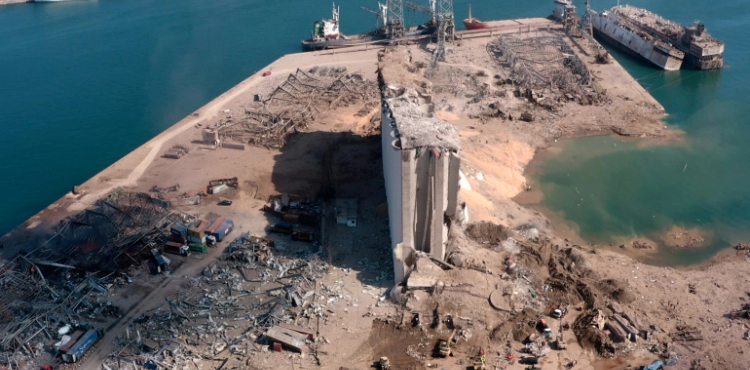Berri considers the formation of a government of non-partisan specialists as a "mandatory entry point to save Lebanon"

BEIRUT - (Xinhua) - Lebanese Parliament Speaker Nabih Berri warned today, Monday, that the continuation of the current crises, without addressing, “will topple Lebanon,” considering that forming a government of non-partisan specialists is the mandatory entrance to save the country.
Berri said in a speech on the occasion of the "Resistance and Liberation Day", which falls on May 25 of each year, "If the crises continue without a quick and immediate initiative to address them, they will topple Lebanon," calling on everyone to "feel the danger of the current and fateful stage, which threatens Lebanon and the Lebanese." In their presence ”.
He believed that it was necessary to acknowledge that the current governmental problem is "one hundred percent purely internal and personal," calling on everyone "to sacrifice for Lebanon and not sacrifice it for the sake of personal interests."
And he considered, "The mandatory entrance to salvation is for those involved in authorship and formation to initiate and then sign today and before tomorrow, without preconditions and without delay, to remove the personal obstacles that prevent the formation of a national government whose members are of non-partisan specialists, in which no one is suspended.
Berri continued, addressing the concerned officials, "Attempt to the constitution in approaching the government file ... Listen to the people´s pain and their concern for the fate of their homeland .. Come to a common word with which we will save Lebanon."
The leader of the Shiite (Amal) movement accused some political forces and parties, without naming them, of “deliberately mastering crises,” warning that these crises “if one continues to reproduce from the womb of the other, it will overthrow all the achievements and have toppled”.
Lebanon has been witnessing a government vacancy since the resignation of Hassan Diab´s government, on the tenth of last August, against the backdrop of the Beirut port explosion disaster.
On October 22, the Lebanese President, General Michel Aoun, assigned the Head of the Future Movement, Saad Hariri, to form the government after the failure of the diplomat, Mustafa Adib, to form it.
Hariri did not succeed in forming the government due to disagreements with President Aoun, his current over ministerial shares, and the form and nature of the upcoming government.
Hariri had presented Aoun with a government formation of 18 ministers of non-partisan specialization. However, the President objected to what he considered “Hariri’s uniqueness in naming ministers, especially Christians, without an agreement with the Presidency of the Republic.”
Hariri accuses Aoun of trying to obtain for his political team, the "Free Patriotic Movement," the "obstructing third" in the government, something Aoun denied.
A political team obtaining the "obstructing third" means that it receives one-third of the government´s ministerial portfolios, which allows it to control its decisions in basic issues that require more than two-thirds votes and control the quorum required to hold its meetings.
The governmental crisis in Lebanon coincides with a series of interwoven economic, living and health crises that have led to an increase in the poverty rate to more than 50 percent, increased unemployment, inflation and a collapse of the local currency exchange rate against the US dollar.

